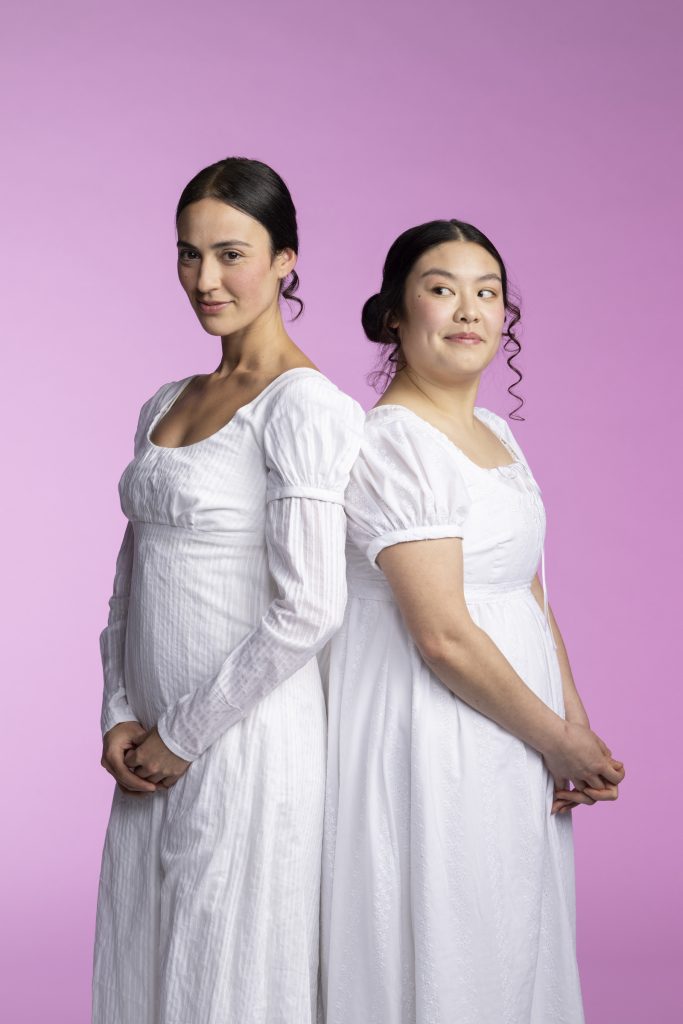
Credit: David Cooper
Stanley Industrial Alliance Theatre until April 2, 2023
Tickets from $35 at 604-687-1644 or www.artsclub.com
Posted March 9, 2023
Under Rachel Peake’s direction, Kate Hamill’s adaptation of Jane Austen’s Sense and Sensibility could not be prettier, more charming or more entertaining. Or, arguably, less like Jane Austen.
I couldn’t help but reflect on opening night, which happened to fall on International Women’s Day, what Austen would think of Hamill’s contemporary take on her 1811 novel, published anonymously. No doubt she would be thrilled to see that women novelists no longer need to hide behind pseudonyms; she would be relieved to hear that wives and daughters can now inherit from husbands and fathers; and in most parts of the world women and men can marry for love if they so choose. Back in 19th century England, money, property and social standing were the determining requirements amongst the gentry, thereby causing a lot of heartbreak for those poor, landless and without status.
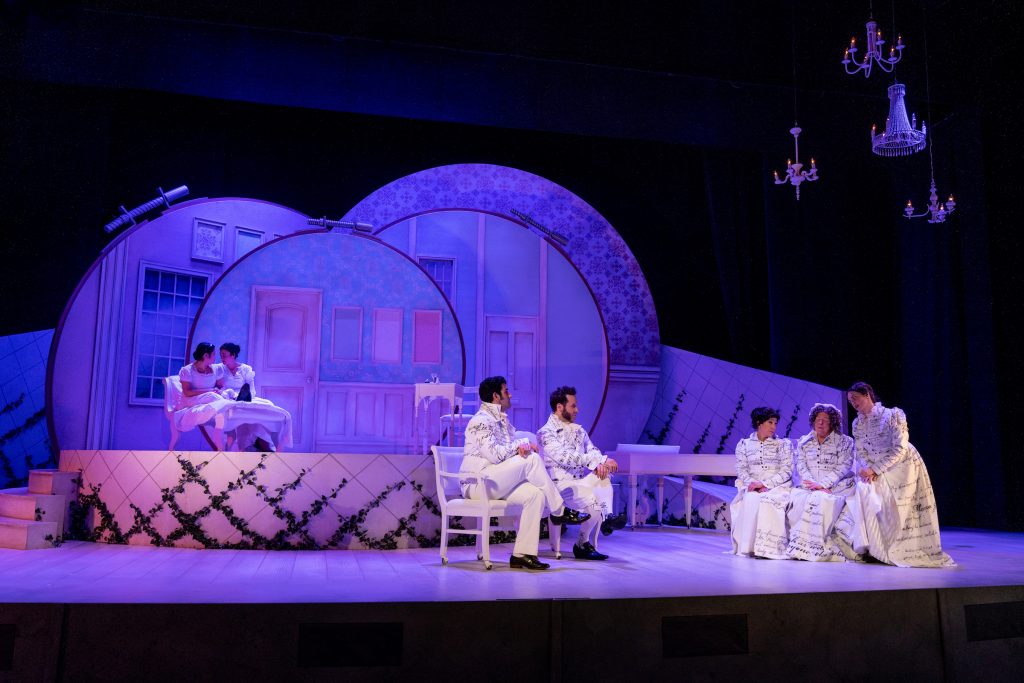
Credit: Moonrider Productions
From the moment we see Shizuka Kai’s pastel set – with three large interlocking embroidery frames (one baby blue, another with primrose yellow wallpaper), white period chairs, and white pianoforte – we know we are in for a very different take on Austen’s novel that, in places, is quite dark. This Arts Club production is so pretty: a wedding cake, a cream puff, a macaron shop in Paris come to mind.
And then there are Jacqueline Firkins’ costumes: white, white and more white: gorgeous. Some are embellished with cursive handwriting, in black, that appears to be reproduced from Austen’s manuscript. Cutaway coats, waistcoats, bonnets, gowns. Not a colour to be seen except for Itai Erdal’s lighting that, on occasion, turns the whole set blue or rocks it with dark clouds and lightning bolts for dramatic effect.
The darker elements of Austen’s novel are still there but coyly masked under all that white.
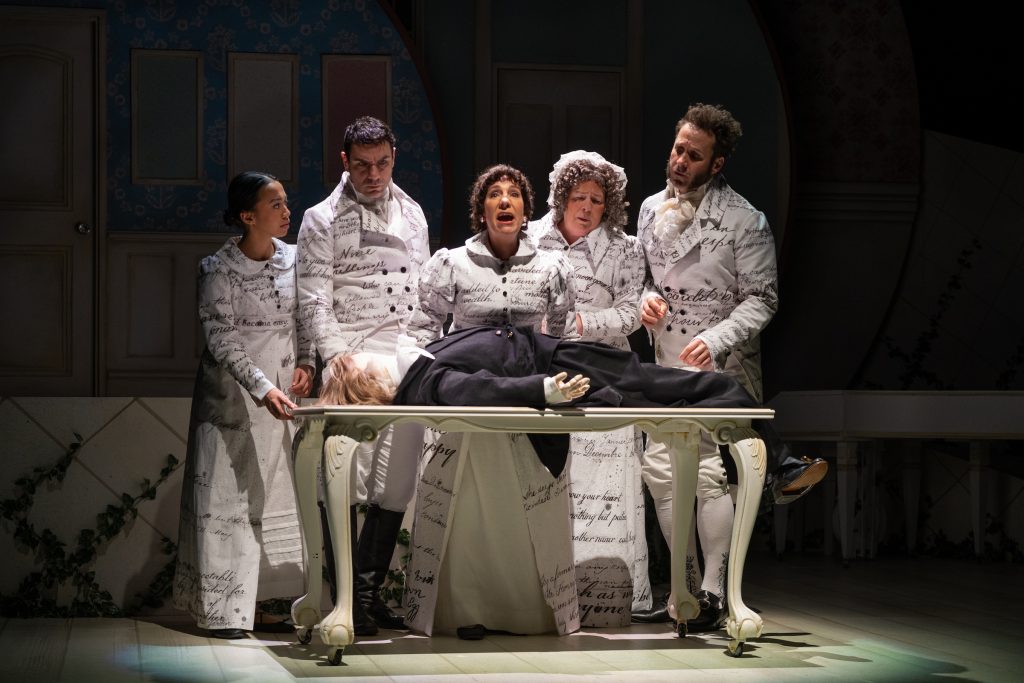
Credit: Moonrider Productions
And it’s funny. Playwright Hamill opens with the servants in the Dashwood manor gossiping amongst themselves. Tara Cheyenne Friedenberg choreographs their every move and, at times, they appear to move as one organism – a chorus, in fact. There is eye-rolling, hand-waving, sighing, scoffing, exaggerated gestures. We are talking about style and this production is eye candy right down to the moving of furniture which is done by the cast of ten. Everything is on casters so furniture – white, of course – is smoothly rolled in, rolled off, and rolled about with balletic flair. Dining scenes are done with two rows of chairs – one facing the audience, the other not. No table, no cutlery, no food. Just conversation and hands appearing to cut those imaginary joints of beef.
In the novel and the play, old Mr. Dashwood has just died, his son John will inherit his entire fortune (according to British law at the time) with the promise to look generously after his mother and his three sisters Elinor, Marianne and Margaret. But John’s penny-pinching wife Fanny intervenes, the women are turfed from their home, moved into a small cottage and are left with a very small allowance. The two marriageable daughters, Elinor and Marianne, must make ‘good’ marriages or all is lost. The third daughter, Margaret, is just a child.
All the actors except Nyiri Karakas (as Elinor) and Amanda Sum (Marianne) are multi-cast and wear the same costume in each role so you have to keep your wits about you.
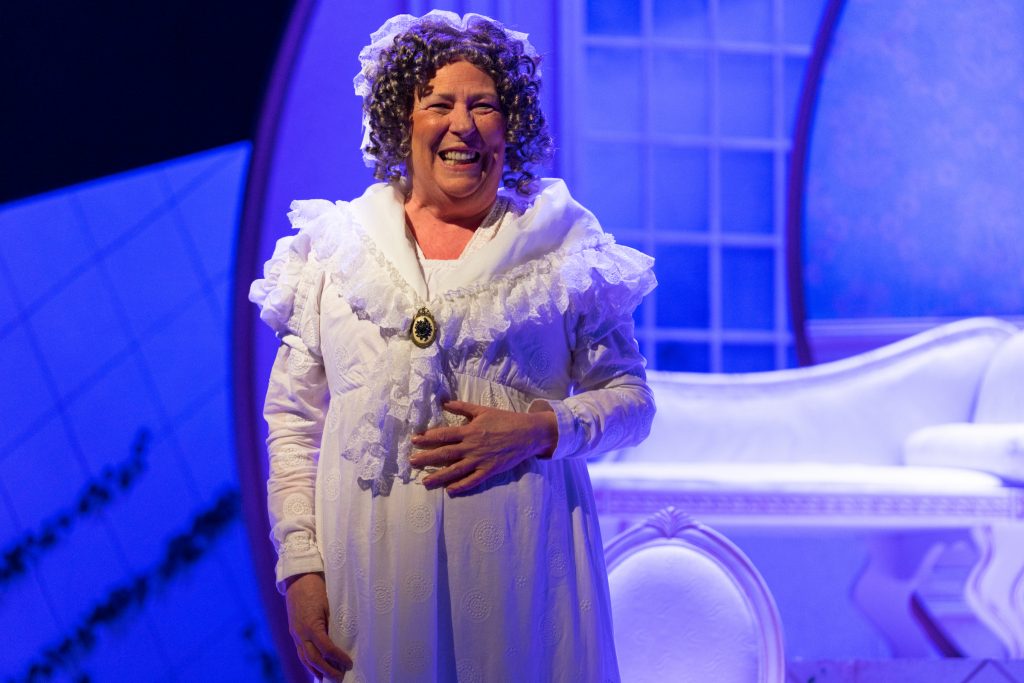
Credit: Moonrider Productions
This is a superb cast but there are standout performances, notably Nora McLellan as the matchmaking rustic Mrs. Jennings and Andrew McNee in every role he plays, especially in his ‘gossip’ role where he can be as flamboyant as he can be. The energy of this production is at its height when these two are doing what they do so well.
Karakas’ Elinor is, as the role requires, calm, thoughtful and reserved; Karakas has us crossing our fingers for Elinor and bumbling but decent Edward Ferrars (Kamyar Pazandeh, who also plays Edward’s brother Robert) and we are immeasurably relieved when it all works out. Emma Slipp, who does nasty so well, is deliciously wicked as the stingy Fanny.
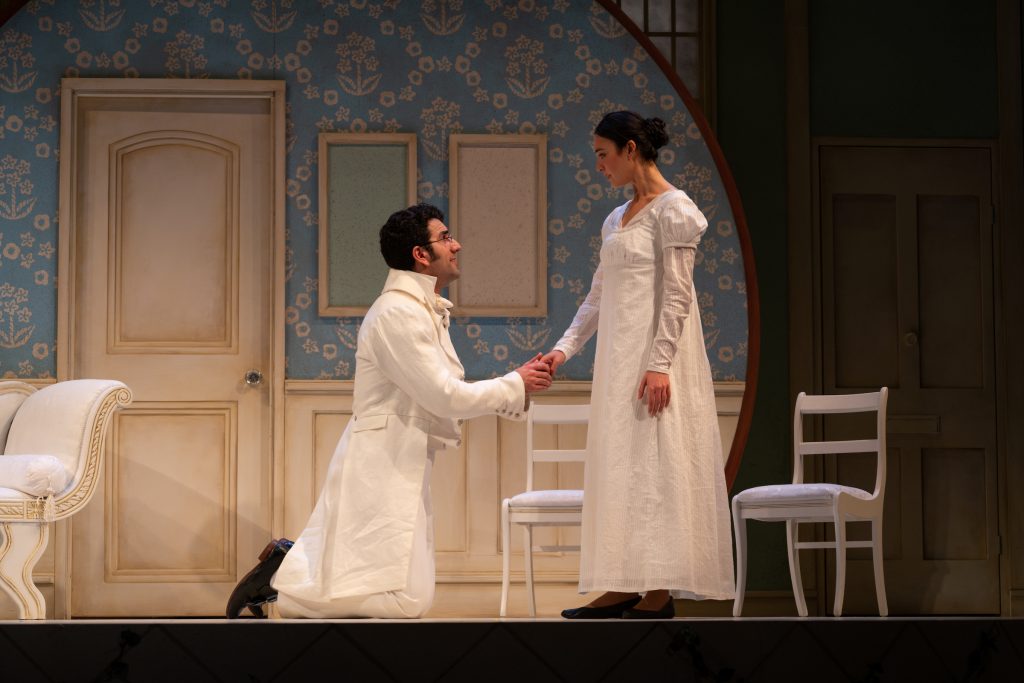
Credit: Moonrider Productions
There’s not a weak link in this cast (completed by Abraham Asto, Jay Clift, Janet Gigliotti and Sarah Cantuba) although until the story begins to wrap up, Amanda Sum as Marianne seems to be about thirteen and hardly marriageable. Heartbreak makes Marianne grow up quickly and Sum shows her character’s growth, especially as Marianne sees that Elinor has been silently suffering the pangs of love for months. It’s a tough role because Marianne IS flighty, thoughtless and childish. In the words of the town gossips she is, “poor, foolish and forward.” A “silly girl”.
There just isn’t a more appropriate word to describe this Arts Club production than ‘pretty’. It may not please those who are great fans of Jane Austen but the style, humour and visual appeal might well win them over. The opening night audience loved it and it was grand to be back in our beloved Stanley.
This production may not be Jane Austen: The Meaty Main Course but it sure is Jane Austen: A Delectable Confection. And oh, those costumes!

